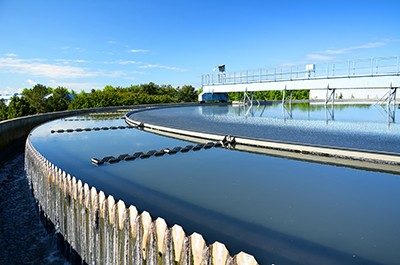FOR IMMEDIATE RELEASE
ACS News Service Weekly PressPac: March 17, 2021
Double-duty catalyst generates hydrogen fuel while cleaning up wastewater
“Recovering Hydrogen Energy from Photocatalytic Treatment of Pharmaceutical-Contaminated Water Using Co3O4 Modified {001}/{101}-TiO2 Nanosheets”
ACS ES&T Engineering
Hydrogen is a pollution-free energy source when it’s extracted from water using sunlight instead of fossil fuels. But current strategies for “splitting” or breaking apart water molecules with catalysts and light require the introduction of chemical additives to expedite the process. Now, researchers reporting in ACS ES&T Engineering have developed a catalyst that destroys medications and other compounds already present in wastewater to generate hydrogen fuel, getting rid of a contaminant while producing something useful.
Harnessing the sun’s energy to split water to make hydrogen fuel is a promising renewable resource, but it is a slow process even when catalysts are used to speed it along. In some cases, alcohols or sugars are added to boost the rate of hydrogen production, but these chemicals are destroyed as hydrogen is generated, meaning the approach is not renewable. In a separate strategy, researchers have tried using contaminants in wastewater to enhance hydrogen fuel generation. While titanium-based catalysts worked for both removing contaminants and generating hydrogen, the efficiencies were lower than expected for both steps because of their overlapping reaction sites. One way to reduce such interferences is to make catalysts by fusing together different conductive metals, thus creating separate places for reactions to occur. So, Chuanhao Li and colleagues wanted to combine cobalt oxide and titanium dioxide to create a dual-functioning catalyst that would break down common drugs in wastewater while also efficiently converting water into hydrogen for fuel.
To make the catalyst, the researchers coated nanoscale titanium dioxide crystals with a thin layer of cobalt oxide. Initial tests showed that this material didn’t produce much hydrogen, so as a next step, the team spiked this dual catalyst with 1% by weight of platinum nanoparticles — an efficient though expensive catalyst for generating hydrogen. In the presence of simulated sunlight, the platinum-impregnated catalyst degraded two antibiotics and produced substantial amounts of hydrogen. Finally, the team tested their product on real wastewater, water from a river in China and deionized water samples. Under simulated sunlight, the catalyst stimulated hydrogen production in all three samples. The greatest amount of hydrogen was obtained from the wastewater sample. The researchers say their catalyst could be a sustainable wastewater treatment option by generating hydrogen fuel at the same time.
The authors acknowledge funding from National Natural Science Foundation of China, Science and Technology Planning Project of Guangdong Province, Fundamental Research Funds for the Central Universities from Sun Yat-sen University and the Research Fund Program of Guangdong Provincial Key Laboratory of Environmental Pollution Control and Remediation Technology.
###
The American Chemical Society (ACS) is a nonprofit organization chartered by the U.S. Congress. ACS’ mission is to advance the broader chemistry enterprise and its practitioners for the benefit of Earth and all its people. The Society is a global leader in promoting excellence in science education and providing access to chemistry-related information and research through its multiple research solutions, peer-reviewed journals, scientific conferences, eBooks and weekly news periodical Chemical & Engineering News. ACS journals are among the most cited, most trusted and most read within the scientific literature; however, ACS itself does not conduct chemical research. As a leader in scientific information solutions, its CAS division partners with global innovators to accelerate breakthroughs by curating, connecting and analyzing the world’s scientific knowledge. ACS’ main offices are in Washington, D.C., and Columbus, Ohio.
To automatically receive press releases from the American Chemical Society, contact newsroom@acs.org.
Note: ACS does not conduct research, but publishes and publicizes peer-reviewed scientific studies.
Media Contact
ACS Newsroom
newsroom@acs.org


